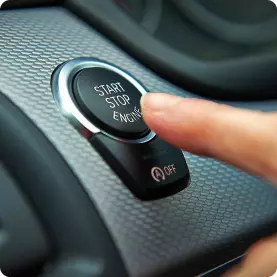Vermont DUI Laws: 2025 DUI Charges Guide
Vermont takes a serious approach to impaired driving, with mandatory ignition interlock devices (IIDs) for repeat offenses and a structured rehabilitation program through the Department of Health. This comprehensive guide covers everything you need to know about navigating a DUI charge in Vermont, from initial arrest to license restoration.

Getting Started
If you’re arrested for a DUI in Vermont, you face both administrative penalties through the Department of Motor Vehicles (DMV) and criminal charges through the court system. This guide provides general information about Vermont’s DUI laws and processes, but it’s not legal advice. Every DUI case has unique circumstances, so consulting with a qualified DUI attorney is strongly recommended for personalized guidance.
Important Note: While this page provides detailed information, DUI.org does not offer legal advice. Laws can change, so consult a qualified DUI attorney for personalized guidance.
Definitions to Know
DUI
Vermont’s legal term for driving under the influence of alcohol or drugs, which can be charged based on either impairment or blood alcohol concentration (BAC).
SR-22
A certificate of financial responsibility providing proof of automotive liability insurance that may be required after a DUI conviction in Vermont.
IID (Ignition Interlock Device)
A breathalyzer installed in a vehicle to prevent it from starting if alcohol is detected on your breath. Vermont requires these for certain DUI offenses.
Vermont Department of Motor Vehicles (DMV)
The Vermont DMV handles the administrative aspects of DUI cases, including license suspensions, reinstatement processes, and oversight of the ignition interlock device program. They maintain records of violations, process restricted license applications, and monitor compliance with SR-22 requirements for drivers with DUI convictions. The DMV works in coordination with the court system but conducts its own administrative procedures independent of your criminal case.
Steps to Take After DUI Arrest in Vermont
- Hire an Attorney
Legal counsel can help navigate both the DMV administrative process and criminal proceedings, potentially reducing penalties or identifying defense strategies.
- License Suspension
Be prepared for your driver’s license to be suspended based on the severity of the offense and your BAC level.
- Request an Administrative Hearing
If disputing a suspension, you must request a hearing with the Vermont DMV promptly to challenge the administrative license suspension.
- Apply for a Restricted License
If eligible, you may apply for limited driving privileges by installing an IID through Vermont’s ignition interlock program.
- Install an IID
Required for certain offenses in Vermont, particularly for repeat offenders or high-BAC convictions.
Explore IIDs - File an SR-22 Form
Vermont may require proof of insurance coverage for license reinstatement after a DUI conviction.
- Complete Substance Abuse Evaluation and Treatment
Vermont requires participation in the Impaired Driver Rehabilitation Program (IDRP) through the Department of Health.
- Pay Fines and Fees
You’ll need to pay court fines plus additional fees for license reinstatement and other administrative charges.
- Complete DUI Education Program
Vermont’s IDRP includes mandatory education components that must be completed before license reinstatement.
- Attend Court Proceedings
Your criminal case will proceed through court independently from the DMV administrative actions.
- Probation
Probation terms may include regular check-ins and abstaining from alcohol or drugs as determined by the court.
- Avoid Further Violations
Any new DUI or violation of license restrictions while on probation or using a restricted license can result in severe penalties, including jail time and extended suspensions.
DUI Laws in Vermont
What Are the Legal Driving Alcohol Limits in Vermont?
In Vermont, it’s illegal to drive if you’re under the influence of alcohol, drugs, or both. The law sets clear blood alcohol concentration (BAC) limits based on your age and license type. Police often use a breathalyzer to quickly check your Breath Alcohol Concentration (BrAC).
| Driver Category | Legal BAC Limit |
| Drivers over 21 | 0.08% or higher |
| Commercial Drivers | 0.04% or higher |
| Drivers under 21 | 0.02% or higher |
Felony vs Misdemeanor DUI Charges
In Vermont, a DUI is typically charged as a misdemeanor for first and second offenses. However, a third or subsequent DUI offense is classified as a felony. Misdemeanor DUIs generally result in fines, possible jail time, license suspension, and mandatory participation in the Impaired Driver Rehabilitation Program. Felony DUIs carry much harsher penalties, including longer prison sentences (up to five years for a third offense), higher fines, longer license suspensions, and mandatory installation of an ignition interlock device.
What Are Drunk Driving Diversion Programs in Vermont?
Vermont offers the Impaired Driver Rehabilitation Program (IDRP) through the Department of Health, which is not a diversion program but a required intervention for all individuals convicted of a DUI. This program focuses on education and treatment rather than providing an alternative to prosecution. To qualify, you must complete an alcohol assessment and follow all recommended treatment plans. The program’s goal is to reduce recidivism by addressing underlying substance use issues.
Refusing a Chemical Test Under Vermont DUI Law
Vermont, like all states, has implied consent laws. When you drive on Vermont roads, you implicitly consent to chemical testing if arrested for suspected DUI. Refusing a test carries administrative penalties separate from any criminal DUI charges.
| Offense | Refusal Penalty |
| First Refusal | 6-month license suspension |
| Second Refusal | 18-month license suspension |
| Third or Subsequent Refusal | Lifetime suspension with possible reinstatement after 3 years |
DUI Penalties & Consequences
Penalties for DUI Offenses in Vermont
Penalties for DUIs in Vermont become progressively severe with each conviction:
First DUI
Jail Time: Up to 2 years
Fines: $750
License Suspension: 90 days
Second DUI
Jail Time: Up to 2 years
Fines: $1,500
License Suspension: 18 months
Third DUI
Jail Time: Up to 25 years
Fines: $2,500
License Suspension: Lifetime (possible reinstatement after 3 years)
Fourth DUI
Jail Time: Up to 10 years
Fines: Up to $5,000
License Suspension: Lifetime (possible reinstatement after 3 years)
Aggravating Factors That Increase Vermont DUI Penalties
In Vermont, these aggravating factors lead to elevated criminal charges, harsher fines, longer jail or prison time, extended license suspensions, and additional requirements:
- Having a BAC of 0.16% or higher (nearly twice the legal limit)
- Causing an accident resulting in injury or death
- Having a minor (under 18) in the vehicle at the time of offense
- Driving with a suspended license when arrested for DUI
- Excessive speed in combination with impaired driving
- Refusal to submit to chemical testing
Driving Without a Valid License
Driving with a suspended license in Vermont due to a DUI is a serious offense that compounds your legal problems. If caught, you face additional criminal charges, which can include jail time, extended suspension periods, and steep fines. The court may view this violation as evidence that you’re not taking your DUI charges seriously, potentially resulting in harsher penalties for your original DUI case. Additionally, if you’re involved in an accident while driving with a suspended license, your insurance likely won’t cover damages, leaving you financially vulnerable to civil lawsuits.
License Suspension
Who Determines if You Can Continue Driving After a DUI
In Vermont, both the DMV and the courts play roles in determining driving privileges after a DUI. The DMV handles administrative license suspensions, which occur automatically after a DUI arrest if you either fail a chemical test (BAC above the legal limit) or refuse testing.
This administrative process is separate from court proceedings. The court may impose additional license suspension penalties upon conviction. For restricted licenses or reinstatement, you must satisfy both the DMV’s administrative requirements and any court-ordered restrictions.
How Long Will Your License Be Suspended?
Getting your license suspended in Vermont means you are no longer allowed to drive a vehicle, unless you obtain a temporary or restricted license during your suspension. Here’s how long your regular license may be suspended for a DUI in Vermont:
| Offense | Suspension Period |
| First DUI | 90 days (or 6 months if test refused) |
| Second DUI | 18 months |
| Third DUI | Lifetime suspension (with possible reinstatement after 3 years) |
| Fourth DUI | Lifetime suspension (with possible reinstatement after 3 years) |
A DUI results in disqualification of a commercial driver’s license (CDL) for at least one year, and a second offense can lead to lifetime CDL disqualification. Vermont does not permit any restricted or probationary CDL following disqualification for DUI, so all commercial driving privileges are lost for the duration of the penalty.
Steps to Reinstate Your License
- Serve suspension period fully.
- Pay reinstatement fees.
- Provide proof of insurance financial responsibility via SR-22 form, if required.
- Complete the Impaired Driver Rehabilitation Program through the Vermont Department of Health.
- Install an IID if mandated by court or administrative order.
- Pass any required re-examination tests.
Restoring Your Driving Privileges
The path to regaining driving privileges after a Vermont DUI involves several steps and requirements designed to ensure public safety and reduce recidivism. Most drivers convicted of a DUI will need to satisfy both DMV administrative requirements and court-ordered conditions before full restoration is possible.
Eligibility for a Restricted Driver’s License
In Vermont, eligibility for a restricted license (called a Total Abstinence license) depends on several factors, including the number of previous offenses. Drivers with a first-time DUI may become eligible after serving a portion of their suspension. Repeat offenses face longer waiting periods. The Total Abstinence program requires demonstrating complete abstinence from alcohol and drugs for a period determined by your offense level.
How to Apply for a Restricted Driver’s License
- Install an IID on your vehicle(s) if required for your offense level.
- Have your insurance company file an SR-22, if required.
- Complete the Impaired Driver Rehabilitation Program through the Vermont Department of Health.
- Provide documentation of need (e.g., employment verification or medical necessity).
- Pay applicable fees, including the license reinstatement fee.
- Submit a Total Abstinence application if applicable for your situation.
Vermont Ignition Interlock Device (IID) Requirements
Vermont requires ignition interlock devices for many DUI offenses, particularly if you have multiple convictions or had a high BAC level at the time of arrest. The device must be installed in any vehicle you operate at your own expense. The Vermont IID program includes:
- Mandatory installation periods ranging from six months for first-time offenses with high BAC to lifetime requirements for drivers with multiple convictions
- Regular calibration and monitoring of the device
- All data from the device is reported to the Vermont DMV
- Any attempts to tamper with or circumvent the device result in program violations and extended requirements
- Users must pay for installation (approximately $100-$200) and monthly monitoring fees (about $75-$100)
- Financial assistance may be available for low-income participants

Selecting the right ignition interlock provider can make a world of difference.
SR-22 Insurance Requirements
After a DUI in Vermont, you may be required to file an SR-22 form, which is a certificate of financial responsibility provided by your insurance company to the DMV. This verifies you maintain the minimum required liability insurance coverage. Vermont SR-22 requirements include:
- Must be maintained for at least three years following reinstatement
- Lapses in coverage are reported immediately to the DMV, potentially resulting in re-suspension
- Premiums for insurance with an SR-22 are typically significantly higher
- You must inform your insurance provider about your DUI conviction

Let us help connect you to the right licensed insurance specialist for you.
Substance Abuse Evaluation and Treatment
Vermont requires all drivers convicted of DUI to complete the Impaired Driver Rehabilitation Program (IDRP) administered by the Department of Health. This comprehensive program includes:
- A clinical assessment to determine the extent of substance use issues
- Education about the effects of alcohol and drugs on driving
- Treatment recommendations based on assessment results
- Group intervention sessions
- Possible referral to more intensive treatment for those with serious substance use disorders
- Fees for the program (typically $400-$600) with potential financial assistance
- Mandatory completion before license reinstatement

Understand what to expect and how to prepare for a substance abuse evaluation.
FAQs About DUIs in Vermont
How long does a DUI stay on your record in Vermont?
A DUI conviction remains on your driving record permanently in Vermont.
Can you drive to work while my license is suspended for DUI?
You may be eligible for a restricted license with an ignition interlock device after serving part of your suspension period.
Do you have to your employer about your DUI?
There’s no legal requirement to disclose a DUI to your employer unless you drive for work or have a specific employment agreement requiring disclosure.
Will a Vermont DUI affect your commercial driver’s license?
Yes, CDL holders face stricter penalties, including a one-year disqualification for a first offense and permanent disqualification for a second offense.
Can you refuse a breathalyzer test in Vermont?
You can refuse, but under implied consent laws, this results in automatic license suspension and may be used against you in court.
Sources
- Vermont State Highway Safety Office. (n.d.). Impaired Driving. https://shso.vermont.gov/programs/impaired-driving
- Vermont Department of Motor Vehicles. (n.d.). License Suspensions. https://dmv.vermont.gov/licenses/suspensions
- Vermont Department of Motor Vehicles. (n.d.). Ignition Interlock Device. https://dmv.vermont.gov/licenses/suspensions/ignition-interlock-device
- Vermont Department of Health. (n.d.). Impaired Driver Rehabilitation Program. https://www.healthvermont.gov/alcohol-drugs/programs-services/impaired-driver-rehabilitation-program
- FindLaw. (n.d.). What Are the Vermont DUI Laws? https://www.findlaw.com/state/vermont-law/what-are-the-vermont-dui-laws.html
Get support.
What is next? We can help you through the process. Give us a little information and we can support you through the next steps.
All fields are required.